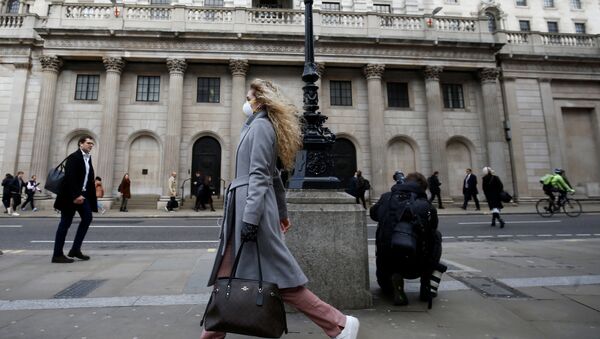With more on this story, Sputnik spoke to Dr Jeremy Rossman, Honorary Senior Lecturer in Virology at the University of Kent.
Sputnik: There’s a lot of talk around cancelling football matches and public events in the UK; Ireland have recently announced all schools to be closed but we’re not seeing the same steps taken here in the UK and the US. Are countries such as the UK and the US really doing enough to the spread of the virus?
Dr Jeremy Rossman: We're moving a little bit too slow in terms of actually trying to counteract the virus; there's been a delay in testing and in rollout of the capacity for testing. A lot of hospitals aren't quite as prepared if there does get to be a point where we have a rapid increase in the number of cases and while we still have a fairly low number of cases, both in the UK and the US, so that we don't need to do full-scale closures are really restrict travel at this point in time; starting to implement more social distancing protocols can really help stop the spread.
We're at this very early stage of virus spread both within the UK and the US and at this early stage more action can dramatically affect the later stage of the spread of the virus. The earlier you act the more effective it can be.
Sputnik: When it comes to talking about the virus people are very quick to mention the similarities between Coronavirus and influenza and the common cold. With that in mind, could we see a decline in coronavirus cases as the seasons change and it gets warmer?
Dr Jeremy Rossman: The seasons can definitely affect many viruses; other coronaviruses, the flu, common colds, and as warmer weather starts to come in a lot of the transmission of these viruses stops. Now, this Covid coronavirus is not the same as influenza, it's not the same as common flu, and it's not the same as other coronaviruses. We don't know how this virus is going to behave in warmer weather.
In warmer weather, many people's immune systems start to work a little bit better, there's frequently a change in behaviour such that people aren't spending as much time in close proximity to each other indoors and so there's a reduction in transmission there. These changes may be very beneficial in helping to reduce the spread of the virus but it's very unlikely that these are going to stop the spread of this virus.
Sputnik: As it stands, there’s a lot talk about a vaccine with a variety of timelines being put forward. Some are saying 6 months, others 12 and yesterday some scientists in the states suggest 16 months… when, if ever, can we expect a comprehensive vaccine for the Coronavirus?
So it's possible that we will not have a coded vaccine for a quite a long time. However, there are a lot of scientists using a lot of strategies to try and make vaccines. We may get lucky and this virus may be more amenable to vaccination and we may actually have a vaccine but even in the best-case scenario of being able to develop a vaccine that is safe and does work it's unlikely that we would have this for use in the country in less than 9 to 12 months from now. So hopefully, this pandemic is well resolved by the time we would have a vaccine.


